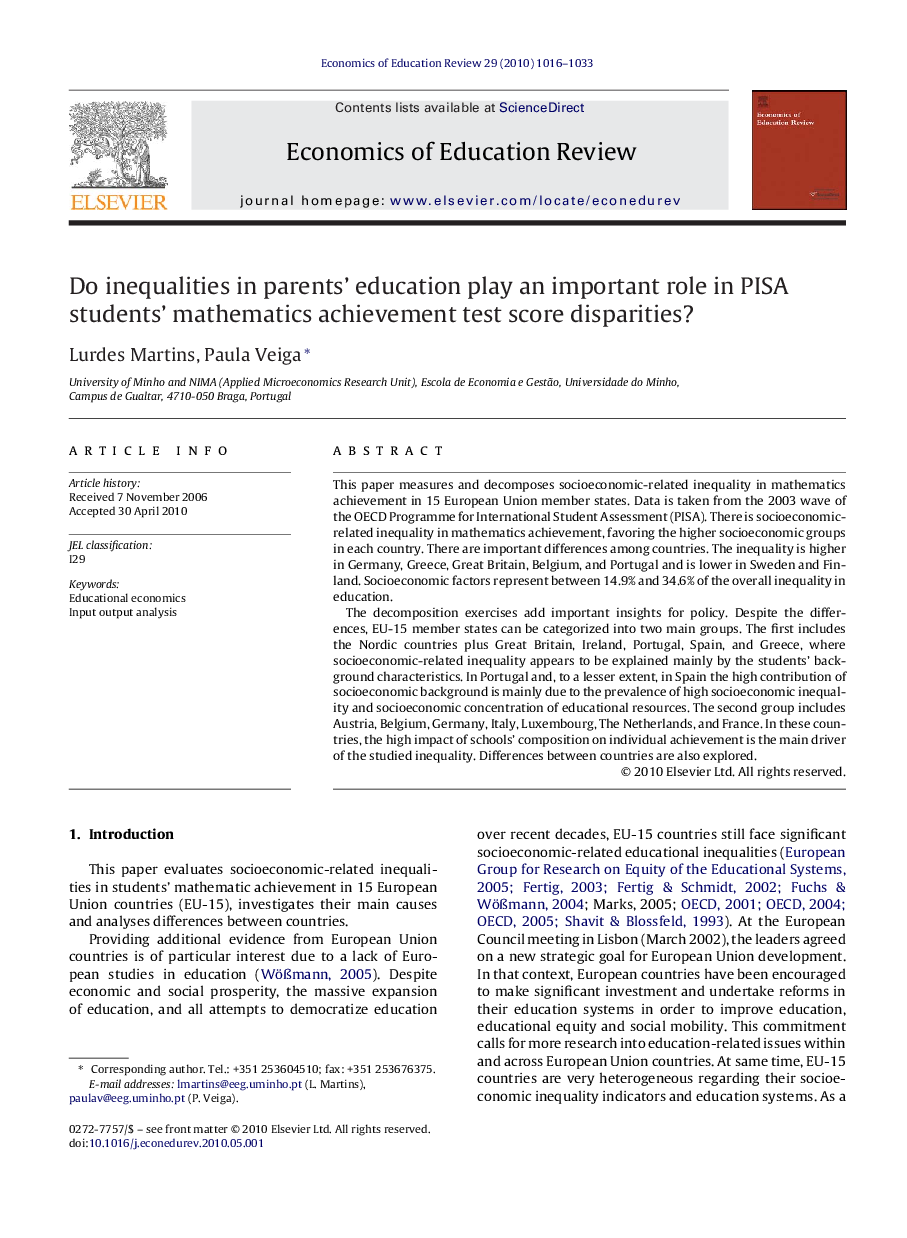| کد مقاله | کد نشریه | سال انتشار | مقاله انگلیسی | نسخه تمام متن |
|---|---|---|---|---|
| 354573 | 1434844 | 2010 | 18 صفحه PDF | دانلود رایگان |

This paper measures and decomposes socioeconomic-related inequality in mathematics achievement in 15 European Union member states. Data is taken from the 2003 wave of the OECD Programme for International Student Assessment (PISA). There is socioeconomic-related inequality in mathematics achievement, favoring the higher socioeconomic groups in each country. There are important differences among countries. The inequality is higher in Germany, Greece, Great Britain, Belgium, and Portugal and is lower in Sweden and Finland. Socioeconomic factors represent between 14.9% and 34.6% of the overall inequality in education.The decomposition exercises add important insights for policy. Despite the differences, EU-15 member states can be categorized into two main groups. The first includes the Nordic countries plus Great Britain, Ireland, Portugal, Spain, and Greece, where socioeconomic-related inequality appears to be explained mainly by the students’ background characteristics. In Portugal and, to a lesser extent, in Spain the high contribution of socioeconomic background is mainly due to the prevalence of high socioeconomic inequality and socioeconomic concentration of educational resources. The second group includes Austria, Belgium, Germany, Italy, Luxembourg, The Netherlands, and France. In these countries, the high impact of schools’ composition on individual achievement is the main driver of the studied inequality. Differences between countries are also explored.
Journal: Economics of Education Review - Volume 29, Issue 6, December 2010, Pages 1016–1033